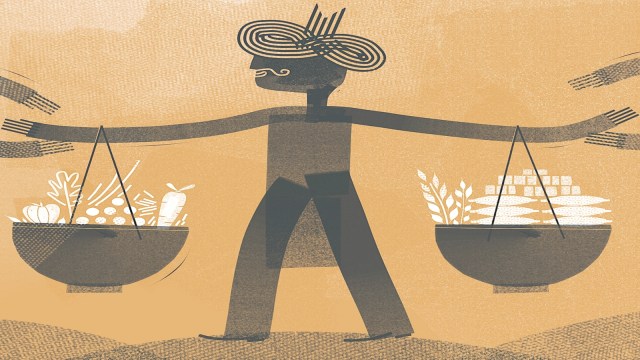
These are uncertain and risky times. US President Donald Trump’s address to the United Nations General Assembly was very candid and clear. It was critical of others and congratulatory to himself and his policies. He criticised the United Nations for not doing enough to stop wars, or even to make sure that its escalators and teleprompter work. He also criticised Europe for having an open-door policy for immigrants and buying energy from Russia. As usual, he also criticised China and India for financing the Russia-Ukraine war by buying Russian crude oil. Enhanced tariffs are his pet punishment for the world.
India is being hit hard with a 50 per cent tariff on goods, and now an enhanced fee of $1,00,000 for H-1B visas. Pharmaceuticals were exempted earlier but are now also on his hit list. All these harsh measures on India may be the result of many factors: India has not given him credit for stopping the India-Pakistan war, which he has claimed umpteen times, or maybe because India is a founding member of BRICS and he doesn’t like BRICS, or he is frustrated at not being able to stop the Russia-Ukraine war. Whatever the reasons, India is in a tight spot, and if the punitive tariffs of 50 per cent stay longer, they will inflict heavy losses and layoffs in India. Somehow, our diplomatic efforts have to rise to this challenge and save the economy from this severe blow, including the fast depreciation of the Indian rupee.
Morocco is known for its reserves of phosphate — it accounts for almost 70 per cent of world reserves. India’s food security is heavily dependent on chemical fertilisers to feed its population of 1.45 billion, which is still growing and is likely to be 1.66 billion by 2050. To ensure our food security, it is critical to ensure a smooth and uninterrupted supply of chemical fertilisers. Nitrogenous fertilisers, especially urea, are heavily dependent on natural gas. Almost 90 per cent of our urea is produced using imported gas. We need to diversify our sources of gas, and correct its pricing to import parity levels, even for domestically produced gas. This will give the right market signals and encourage domestic exploration. In the case of phosphatic fertilisers, India imports either phosphatic rock or phosphoric acid, partly manufactures phosphatic fertilisers (DAP) at home and partly imports them from various sources. India needs to ensure long-term supplies of this raw material.
With Morocco being the home of phosphate rock mines, India needs to work closely with it, through joint ventures in mines, and jointly produce phosphoric acid, as well as phosphatic fertilisers like DAP (18-46-0), Single Super Phosphate (SSP with 16 per cent P2O5), and Triple Super Phosphate (TSP with 46 per cent P2O5). TSP can easily replace DAP, as both have 46 per cent P2O5, and we are overusing urea (Nitrogen) and damaging our soils. So, there is no need to have 18 per cent N in DAP, and straight away use urea (46 per cent N), and TSP (46 per cent P2O5). If India plays its cards well by joining hands with Moroccan counterparts, the way Tata Advanced Systems did by setting up the defence equipment factory, it can be a game-changer for both countries. Jointly, the two countries can be suppliers to the world for phosphatic fertilisers, with strong demand emanating from India itself. The OCP group in Morocco is the largest player involved in the phosphatic business, and has the blessings of the Moroccan government. In India, it has an equity stake in Paradeep Phosphates. Chambal Fertilisers also has some involvement in Morocco, but much more needs to be done for India’s food security.
India’s Minister for Chemicals and Fertilisers, J P Nadda, recently signed an agreement to import more than three million tonnes of phosphate annually from Saudi Arabia. But Saudi Arabia just signed a strategic defence partnership with Pakistan. This does not augur well for India. India needs to be cautious on geopolitics to ensure its own food security lines. So far, it has been a net exporter of agri-produce, but given that almost 90 per cent of gas for urea is imported, and most phosphate is imported in different forms (rock, acid, and finished product), and potash (K) is fully imported, India’s food security needs a critical look. It needs strategic partnerships with countries it can trust to obtain uninterrupted supplies of gas, phosphate, and potash. Together, PM Modi and Agriculture Minister Shivraj Singh Chouhan have the responsibility of ensuring that India remains food-secure. It may be worthwhile for Chouhan and Nadda to emulate Rajnath Singh and develop joint ventures with trustworthy nations for these critical inputs.
The writer is distinguished professor at ICRIER. Views are personal